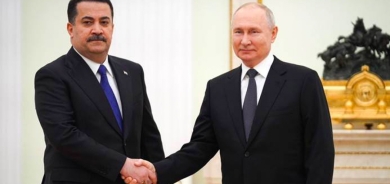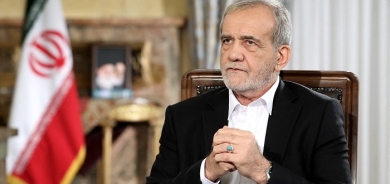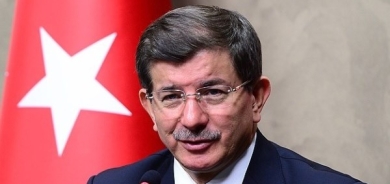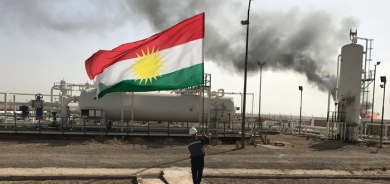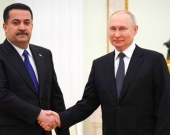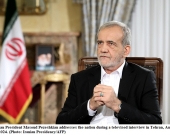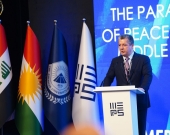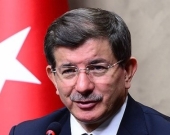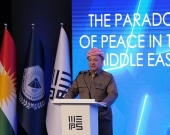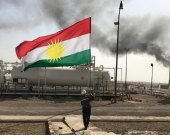Pope’s Iraq trip brings him close to 'suffering' Christian community

The Roman Catholic leader is planning to visit Iraq and the Kurdistan Region from March 5-8 to show solidarity to a Christian community that has been decimated by ongoing wars since 2003 and attacks from jihadist groups such as al-Qaeda and Islamic State that target minorities, including Christians and Yezidis (Ezidis).
Warda said it was “historical and courageous” for the pope to visit Iraq amidst security threats and the COVID-19 pandemic. He predicted it will not be easy for Francis and his delegation but “it’s needed and so he will make it.”
ISIS entered Mosul, Iraq’s second-largest city, in June 2014 and eventually occupied a large territory that included Christian-populated areas in the Nineveh plains. Around 200,000 were displaced and many fled to the autonomous Kurdistan Region.
The archbishop said preparations for the pope’s historic visit began two weeks ago. "We are very grateful for the government of Kurdistan that they put everything needed to help to make this successful,” he told Kurdistan 24 in an exclusive interview in the capital’s predominately-Christian Ankawa suburb. “Of course, Erbil will have the biggest event, which is the final Mass.”
Francis will hold a final Mass, generally an important milestone in a pope’s trip abroad, in Erbil’s Franso Hariri Stadium on March 7 before departing for Rome. Organizers have limited attendance to no more than 10,000 people because of COVID-19 concerns.
Decline of Christians in Iraq
“The number of Christians has started declining since 2003,” Warda said. “But we cannot deny the fact also that there are certain areas in the country that welcomed the Christians, like Kurdistan.”
He added that ISIS attacks had devastating results on the Christian community. “But thank God with the work and contribution of all we were able to maintain 8,000 families and keep them safe here in Erbil.”
In 2019, the archbishop told the BBC that the Christian community had dwindled by 83 percent, from around 1.5 million to just 250,000.
The US State Department’s most recent annual report on religious freedom estimated that between 10 and 22 Christian families are leaving Iraq and the Kurdistan Region every month, many driven out by discrimination and threats of violence.
Some Christians returned to the Nineveh plains in 2016 and 2017, Warda said. However, there are still 2,600 Christian families living in the Kurdistan Region that were unable to return to Mosul and “need help to rebuild their houses” there, as well as programs to help them rebuild their livelihoods.
The Kurdistan Region’s Prime Minister Masrour Barzani told France 24 in a recent interview that he hopes the pope’s visit will prompt more international support for refugees, including Christians who have been displaced to the Kurdistan region.
Solving problems for the Christian community
The archbishop underlined that the pope’s visit will highlight the importance for politicians to work together to “maintain the diversity of the Iraqi population.”
“This is not a typical everyday story, especially if you consider that His Holiness Pope [John Paul II] wanted to make this trip in the year 2000, but he couldn’t," Warda said.
In 2019, Pope Francis said he would embark on his first trip to Iraqi the following year, but it was postponed due to regional tensions and the global coronavirus pandemic. According to Warda, who has met the pope several times, it was the pontiff’s wish to visit Iraq.
“He always mentioned that he wanted to visit this country and he wants to be close to the suffering of the people of Iraq,” Warda said.
However, he added that the pope will not be able to solve issues such as the confiscation of Christian homes by militias and influential families in Iraq.
Earlier this month the Vatican News service reported that 38 illegally expropriated houses and land in Iraq were returned to Christian owners after a campaign by the influential Iraqi Shia cleric Muqtada al-Sadr. Francis is scheduled to meet top Shia cleric Grand Ayatollah Sayyid Ali al-Husayni al-Sistani in the city of Najaf on March 6.
Warda stressed that resolving the Christian community’s problems “is the responsibility of the Iraqi government because Christians, first and foremost, are citizens of Iraq, and they have rights as citizens of Iraq.”
"So his holiness, when he comes is just [with] a message of peace and support, that's all," Warda added. "He is coming for the Christians as a pastor, as a father, as a shepherd, but when it comes to the rights of [Christians] this is the responsibility of the Iraqi government."

